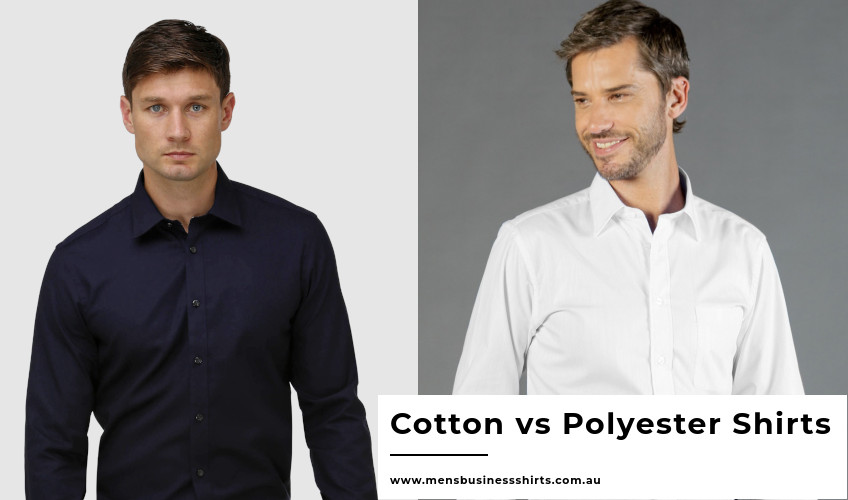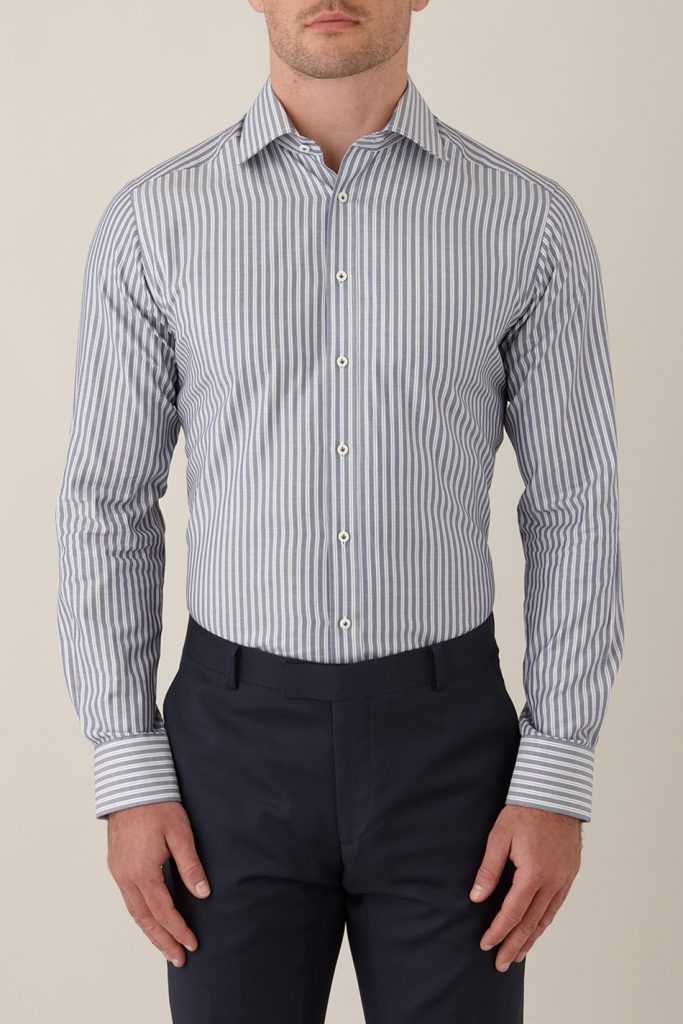Cotton vs. Polyester shirts – What’s best?
Cotton and polyester are the two common fabrics used in making dress shirts. Cotton is known for its softness & comfort ness whereas polyester offers lightweight and fast drying options. At Mens Business Shirts, you can find both high-quality cotton and polyester shirts.

Cotton shirts and polyester shirts come with significant advantages and a few drawbacks. In this article, we have discussed both options.
Cotton business shirts
Cotton is the leading apparel fabric worldwide and for all the good reasons. Cotton is the most breathable fabric. It easily absorbs moisture from the body and helps to regulate your body temperature. So, cotton can be a good option for year-round wear. Egyptian cotton shirts are one of the best shirt ranges you can buy and wear.

Cotton also stands for comfort. It is softer on the skin and it feels light to wear. Cotton saves you from fabric irritation and discomfort. Because of this reason, cotton dress shirts are a good option for those with sensitive skin. It is also durable. Its maintenance is also cost-friendly. There is no need for costly dry cleaning.
If wearing cotton is something you love, explore our Cambridge shirts and Geoffrey Beene shirts range where there are several options for cotton-rich shirts.
Because cotton is a natural fibre, it is more prone to shrinking. Cotton absorbs moisture and holds it, causing sweat patches. You may think of going with the second fabric option, i.e. polyester business shirts or mixed fabric shirts.
Polyester business shirts
Polyester is another popular fabric for dress shirts. If cotton is a good choice for office wear, then polyester is a good choice for active wear. We use polyester to make clothes that are light wear and comfortable like workout clothes, casuals, and activewear. Polyester clothes are pocket-friendly. Despite washing and wearing n number of times, they do not fade and do not wear down easily.

But polyesters have minor issues too. Polyester is less breathable than cotton. Though polyesters don’t hold sweat for long and dry quickly, they holds your body odour. Wearing them for long without washing them may lead to the growth of more bacteria and a foul smell. Washing them and drying them out in the sun is a good option.
When to use cotton shirts?
We mostly used cotton shirts during summer because of their highly breathable nature. We sweat a lot in summer because of the high temperatures and scorching heat. Sweating is our body’s way of cooling us from excessive heat. Wearing cotton helps our body to absorb this moisture and keeps us cool. The best thing about cotton clothes is they do not retain body odour and save us from embarrassing situations.
Visit our post on the best fabric for a dress shirt to learn more.
Are polyester shirts a good option?
Polyester shirts may not be a good option for professionals and office wear because of their less breathability and odour retention. In summer, sweating is your body’s natural way of cooling you down from excess heat. polyester shirts allow moisture to evaporate from the body and may act against the body’s natural way of cooling you down. This may cause you to sweat more.
Polyester clothes are preferred more in sportswear and activewear. Because of their lightweight nature, they are good to use when you are laidback and having fun.
Should I buy a mixed-fabric shirt?
Every fabric comes with advantages and drawbacks. In today’s busy world, we barely have time to decide what to wear. It becomes a hassle to check your shirts for stains, sweat patches, and foul smells.
You may worry that improper dressing and the quality of the material may not only embarrass you at work but may also hamper your progress at work.
To help customers, Mixed fabric shirts try to provide the customers with best of the both worlds. Mixed fabric shirts are produced with a combination of two or more different fabrics. Some best examples are Polycot made by blending polyester and cotton, Poly Wool made by blending polyester and wool, and many more.